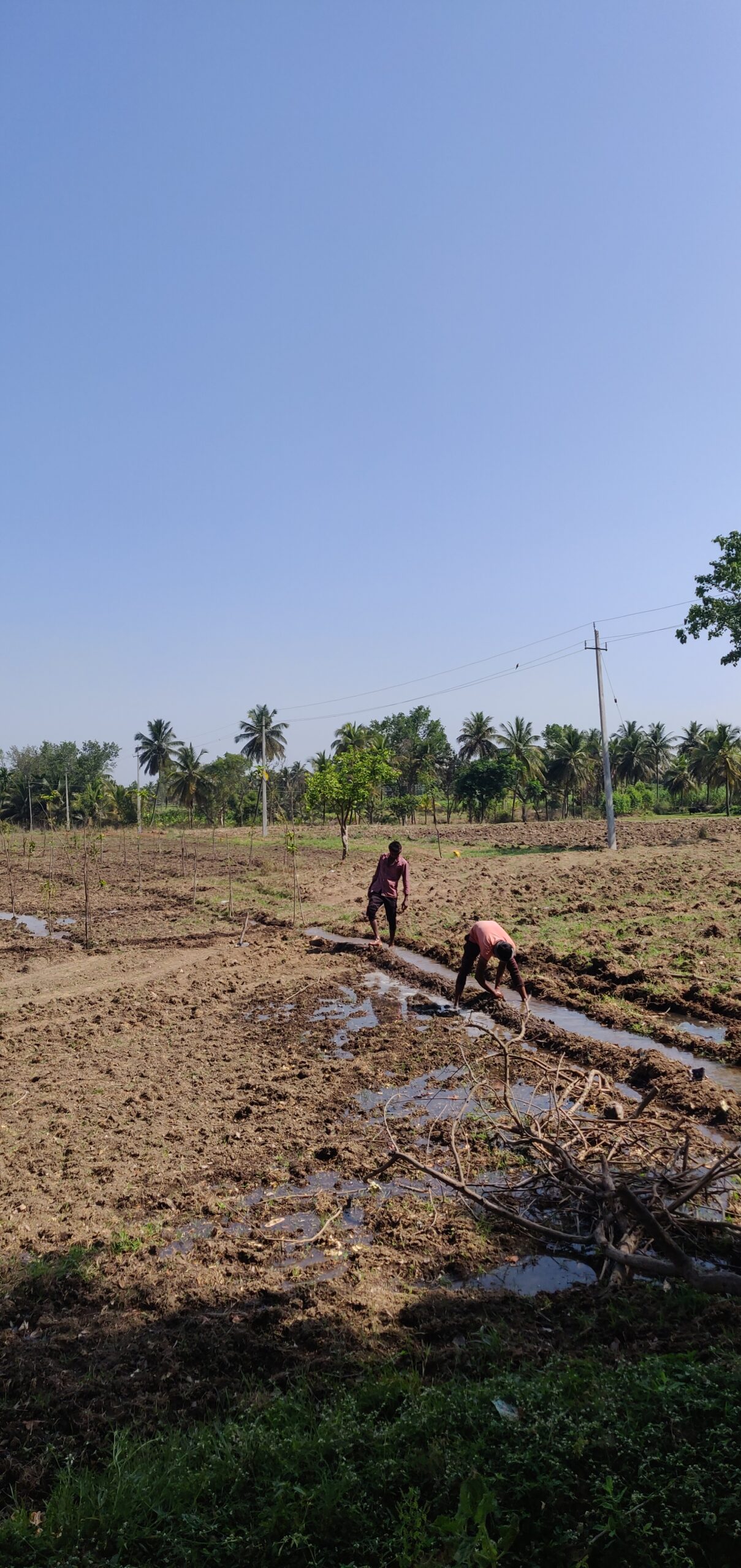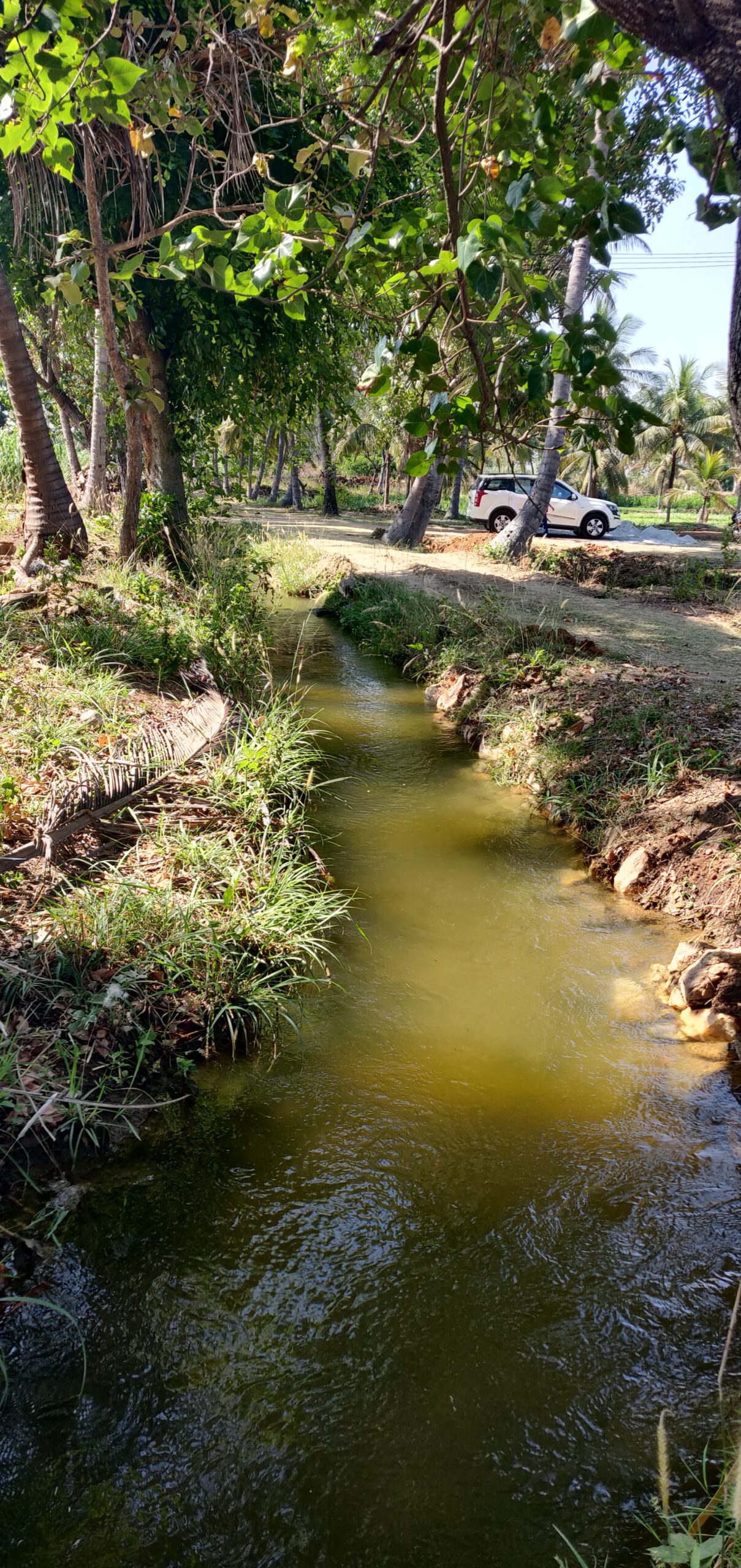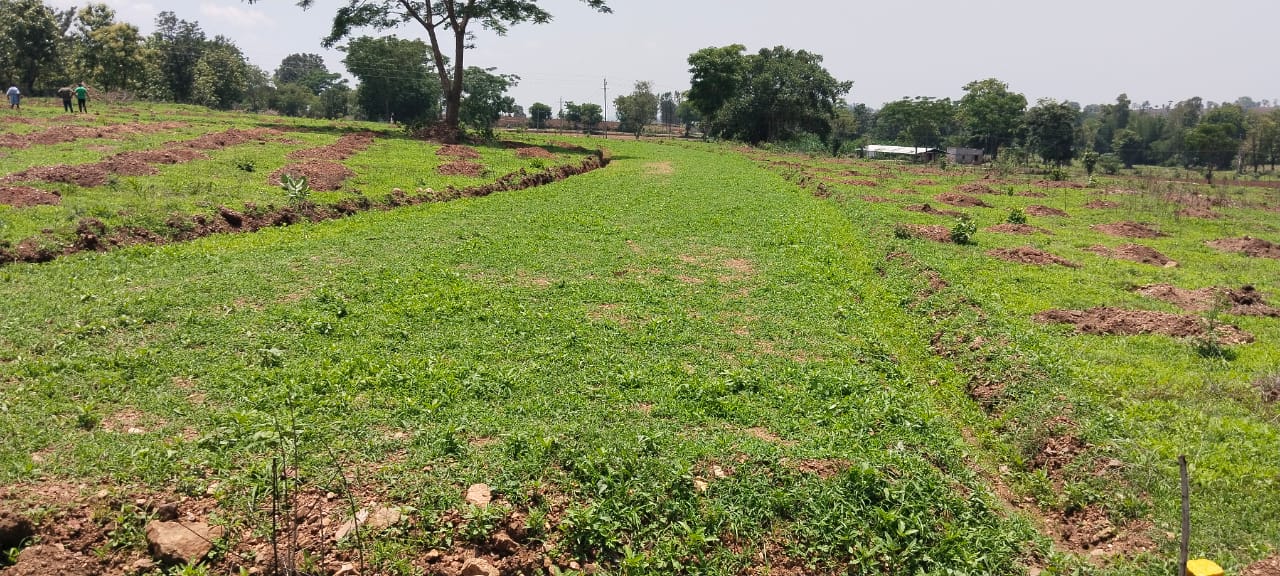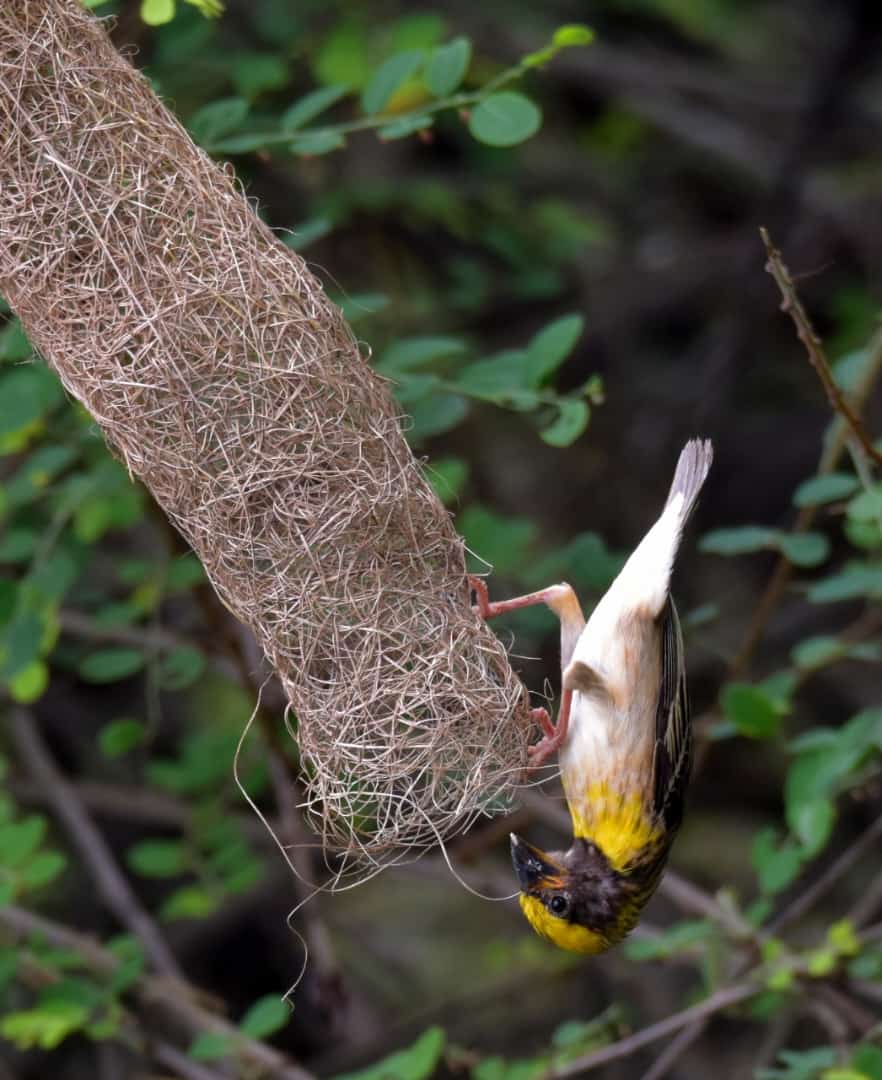A return to the roots
Being light on the land, and sharing the fruits of organic farming, is the objective of Madhuvana.
A brook goes gurgling merrily around the land. A tree house invites you to share the canopy with birds and squirrels. Patches of green crops, freshly tilled land and a boundary of trees marks Madhuvana, certified organic land awaiting its community of dwellers.
Ravindra T C, a committed green warrior joined hands with the Vanatvam group of enthusiasts to develop this 20 acre patch of land into a natural, sustainable community living off the land. It is 15 kms off the new Mysore-Bangalore expressway and situated in the fertile Cauvery belt.

Readying the land at Madhuvana for fruit trees
Plots of 10,000 sq kms are being sold to people interested in community living in natural conditions. Crops grown organically will be harvested sustainably and distributed among the community. Any profit from sale will also be shared equally. One crop of paddy was harvested since the project was kicked off six months ago. Fruits like sapota, avocado and guava have now been planted.
Together with Vanatvam, Ravindra’s company Indus Herbs has been holding festivals like vasanthotsava to mark the onset of spring. The idea is basically to go to one’s roots, he says. As more and more city-zens look for a release from stress-filled jobs, it is this call to living off the land that is bringing more people to communities like Madhuvana, Sapna Ranch, or Annadana.

The canal water that supplies perennial water to Madhuvana
Different models work in different ways. While some call for involvement in the running of the place, some like Madhuvana give the option to work on the soil or leave it to the developer. In essence, people get to live in open spaces with pure air and water, learn how to grow crops and study the role of biodiversity while leading simple lives.
Purely conservation
Ravindra has also another project offering where people can buy an acre or more of land in Kabini, where he plans to grow forest species of Western Ghats on 38 acres of land. The trees will be those endemic to the region and the wood or other produce will be harvested, sustainably.

The land at Kabini
“This is purely a conservation-oriented project aimed at preserving local biodiversity,” he clarifies. In both projects, people who buy in can build their homes, but are encouraged not to fence or compound their sites. Sustainable housing options will be provided by the developer, who has tied up with architects for the same.

A weaver bird at home in Madhuvana
Ravindra has been associated with various greening projects in Bangalore and few other cities, and has contributed to adding at least 5-6 lakh trees in the city since a decade now. But he is quick to add that it is not the numbers that matter as much as the species. “What species you select is most important.” Traditional species that grow in an area will survive easier than others and will be able to handle the pests.
For instance, in the greening and maintenance of many of the parks and lakes of Bangalore where he was involved with few other NGOs, Honge is a visible presence, as also some other traditional species like Arjuna, Kadamba, Banaba, Neem, Jamun, Mahua, and many plants of the ficus genus like the Mysore fig (Goni) and cluster fig (Athi). Some of these are keystone species that attract birds and insects. Many of them also have medicinal attributes. Wild grasses too have their place in the ecosystem. The resulting outcome is that the parks look like small forests with butterflies and birds taking residence. The ecosystem is complete only when we have plants, grass, shrubs and trees, notes Ravindra.
Having dabbled in greening homes, lakes and parks, he went on to more specialised projects like creating sacred groves of medicinal plants in educational campuses like Jnana Bharati where 300 species of traditional trees like rudraksh, Ashoka and other Western Ghats species were planted. After his meeting with forester and environmentalist Yellappa Reddy, who became his mentor, Ravindra’s horizons further widened. He was associated with rejuvenation of rivers and Nandi Hills afforestation.
Natural Oxygen Bars
Of particular interest are the high-density forests he has grown on lands, both as big as the few acres in Bangalore University or a small patch like the one near the underpass at Cantonment Station where over 1000 trees, shrubs and seed plants share a narrow strip of ‘waste land’. At Kaggalipura he has planted 1 lakh trees in 15 acres of land and they are flourishing. So also at the empty barren land at Bylkuppe he has helped grow a biodiversity park. In the 70 acres of land there are 70 different varieties of fruit bearing and Western Ghats trees.
Ravindra’s company IndusHerbs provides integrated green solutions for towns and cities, extending across lakes, parks, gardens, waste treatment, etc. The company also sells natural products like herbs, spices and oils.
By Jaya
(Disclaimer: We do not endorse any company or products. We bring verified information, especially that which works towards sustainable lifestyles with low carbon footprint.)
